Pastiches ‘R’ Us: Conan the Defender
 Conan the Defender
Conan the Defender
Robert Jordan (Tor, 1982)
I’ve had some requests on the site and in emails to my own blog from people who have enjoyed previous installments of “Pastiches ‘R’ Us” to look at Robert Jordan’s novels. I’m here to serve. This week and next I’ll feature two of the famous fantasy author’s Conan novels.
Robert Jordan, the pen name of James Oliver Rigney Jr., is the best-known of the stable of writer on Tor’s long-running and now defunct Conan pastiche series. After writing six consecutive books (and the novelization of Conan the Destroyer), Jordan turned into one of the most popular authors of epic fantasy with his “Wheel of Time” series. Unfortunately, Jordan’s career ended early with his death in 2007 from cardiac amyloidosis, only a month before his fifty-ninth birthday.
How does Jordan’s work on Conan stack up? He’s not consistently the strongest of the Tor group—I think John Maddox Roberts deserves that title—but when Jordan first started writing Conan, he created some fresh and energetic material. His first Conan novel, Conan the Invincible (also the first of the Tor series), is pulpily exciting and one of the few pastiches from the Tor books that I recommend to people who normally avoid non-Howard Conan.
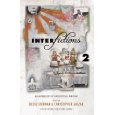 What’s interesting about a collection of “interfictions,” aka “interstitial fictions,” is that this isn’t just another descriptor (e.g., new wave fabulism, new weird, slipstream, paraspheres, fill-in-the-blank) made up by an editor or a marketing department or critic that subsequently becomes blogosphere fodder about how inaccurate and/or stupid it is. Rather, interfictions is the self-proclaimed terminology of an actual
What’s interesting about a collection of “interfictions,” aka “interstitial fictions,” is that this isn’t just another descriptor (e.g., new wave fabulism, new weird, slipstream, paraspheres, fill-in-the-blank) made up by an editor or a marketing department or critic that subsequently becomes blogosphere fodder about how inaccurate and/or stupid it is. Rather, interfictions is the self-proclaimed terminology of an actual  Jhegaala
Jhegaala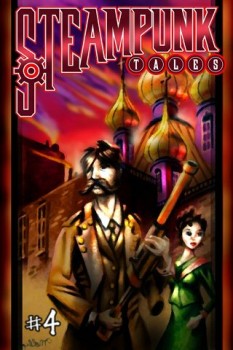 Steampunk Tales offers an interesting convergence of the new and old, a pulp magazine for the iPhone (don’t worry, non-Apple heads, there’s also a downloadable PDF version). Volume 4 features ten stories:
Steampunk Tales offers an interesting convergence of the new and old, a pulp magazine for the iPhone (don’t worry, non-Apple heads, there’s also a downloadable PDF version). Volume 4 features ten stories: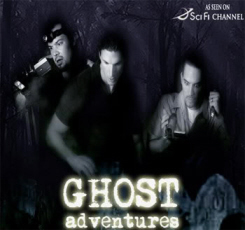 I’ll bet you’ve noticed a rather interesting trend on your cable channels lately. Namely, ghost hunting reality shows.
I’ll bet you’ve noticed a rather interesting trend on your cable channels lately. Namely, ghost hunting reality shows.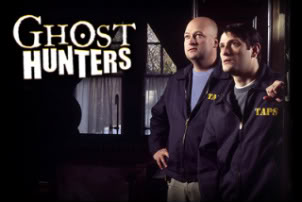 Then again, an equal number are train wrecks of over-acting we just can’t look away from.
Then again, an equal number are train wrecks of over-acting we just can’t look away from.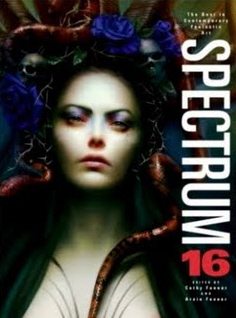
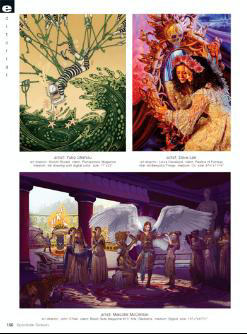 Spectrum 16, edited by Cathy and Arnie Fenner, was published this month by Underwood Books.
Spectrum 16, edited by Cathy and Arnie Fenner, was published this month by Underwood Books.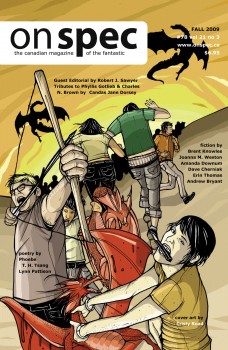 Canadian SF magazine
Canadian SF magazine  In addition to eating, putting the finishing touches on BG 14, eating, writing my editorial, and eating, I’ll be stealing a few hours for leisure reading. Thanksgiving weekend usually involves at least a little travel (this year we’re celebrating in Madison, Wisconsin, three hours from our home in St. Charles, IL), so anything too long is out. I need something I can finish in short bursts, in between sequential naps in a big green recliner.
In addition to eating, putting the finishing touches on BG 14, eating, writing my editorial, and eating, I’ll be stealing a few hours for leisure reading. Thanksgiving weekend usually involves at least a little travel (this year we’re celebrating in Madison, Wisconsin, three hours from our home in St. Charles, IL), so anything too long is out. I need something I can finish in short bursts, in between sequential naps in a big green recliner.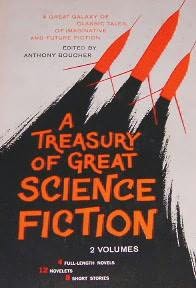 Volume One, From Poe to the Pulps, features Herman Melville, Robert W. Chambers, Edith Wharton, Robert E. Howard, H. P. Lovecraft, Clark Ashton Smith, Robert Bloch and many others. Volume Two, From the 1940s to Now, includes John Cheever, Charles Beaumont, Vladimir Nabokov, Harlan Ellison, Richard Matheson, John Crowley, Stephen King, Steven Millhauser, and over a dozen more.
Volume One, From Poe to the Pulps, features Herman Melville, Robert W. Chambers, Edith Wharton, Robert E. Howard, H. P. Lovecraft, Clark Ashton Smith, Robert Bloch and many others. Volume Two, From the 1940s to Now, includes John Cheever, Charles Beaumont, Vladimir Nabokov, Harlan Ellison, Richard Matheson, John Crowley, Stephen King, Steven Millhauser, and over a dozen more. I am going to semi-repeat myself in my next two Black Gate posts, going over graphic novel versions of material that I’ve discussed over the past few months.
I am going to semi-repeat myself in my next two Black Gate posts, going over graphic novel versions of material that I’ve discussed over the past few months.